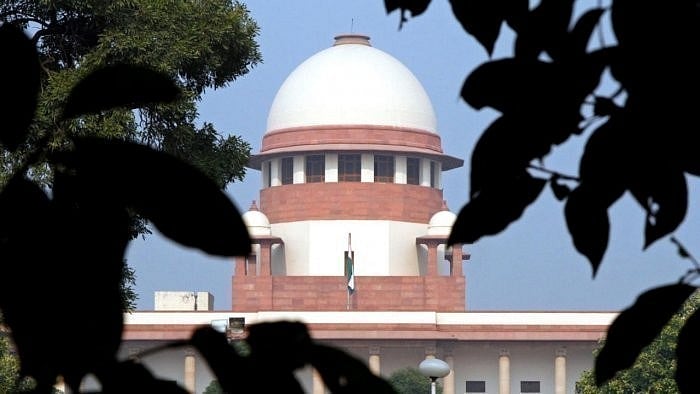
The Supreme Court of India.
Credit: PTI File Photo
New Delhi: The Supreme Court has granted bail to a Muslim man jailed for nearly six months after marrying a Hindu woman.
A bench of Justices B V Nagarathna and Satish Chandra Sharma said the state cannot have any objection to the appellant and his wife residing together inasmuch as they have been married as per the wishes to their respective parents and families.
“In the circumstances, we find that this is an appropriate case where the relief of bail ought to be granted to the appellant herein. We also make it clear that the pendency of the criminal proceeding against the appellant herein would not come in the way of the appellant and his wife residing together on their own volition”, said the bench in an order passed on May 19.
The bench allowed an appeal filed by a man, who was denied bail by the Uttarakhand High Court in February 2025.
The appellant was arrested under provisions of the Uttarakhand Freedom of Religion Act, 2018 and the Bharatiya Nyaya Sanhita, 2023, for allegedly concealing his religious identity and fraudulently marrying the woman under Hindu rites.
The counsel, for the appellant, contended that a frivolous complainant has been lodged against the appellant only because he is married to a lady who is following a different faith.
He submitted that the marriage between the parties was an arranged one which were known to both the sides, and the families voluntarily decided for it.
“However, soon after the marriage certain persons and certain organisations seemed to have objected to the marriage. This resulted in the FIR (in December 2024) being lodged against the appellant herein. The appellant is in jail for nearly six months,” the counsel said.
The counsel also argued that the chargesheet has been filed, having regard to the nature of the allegations alleged against the appellant herein, and the petitioner is entitled to the relief of bail.
The appellant’s counsel further submitted that if the appellant is released on bail possibly the appellant and his wife would reside separately from their families and continue to live peacefully without any hindrance. The state government’s counsel argued that there is no merit in this appeal and the same may be dismissed.
Allowing the plea, the bench directed that the appellant should be produced before the concerned trial court as early as possible and the trial court shall release him on bail, subject to such conditions as it may deem appropriate to impose to ensure his presence in the proceedings arising out of FIR.
The bench directed that the appellant should extend complete cooperation in the ensuing trial and he should not misuse his liberty. “Any infraction of the conditions shall entail cancellation of bail granted to the appellant. With the aforesaid directions, the criminal appeal is allowed," the bench said.
The Uttarakhand High Court earlier declined to grant bail to the petitioner, holding that facts relating to his religion had allegedly not been disclosed to the woman and her family before the marriage. The petitioner’s counsel argued that his client’s mother is a practising Hindu and that he grew up in a Hindu environment, however this contention did not convince the high court.
